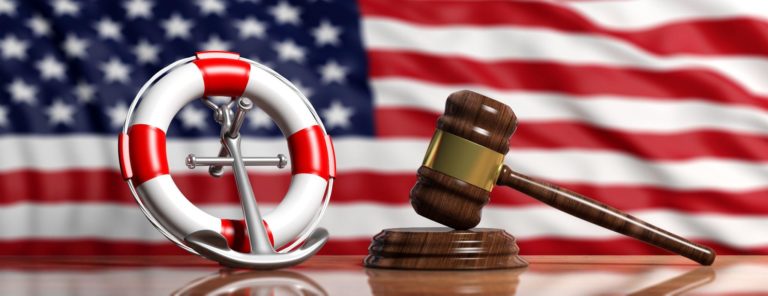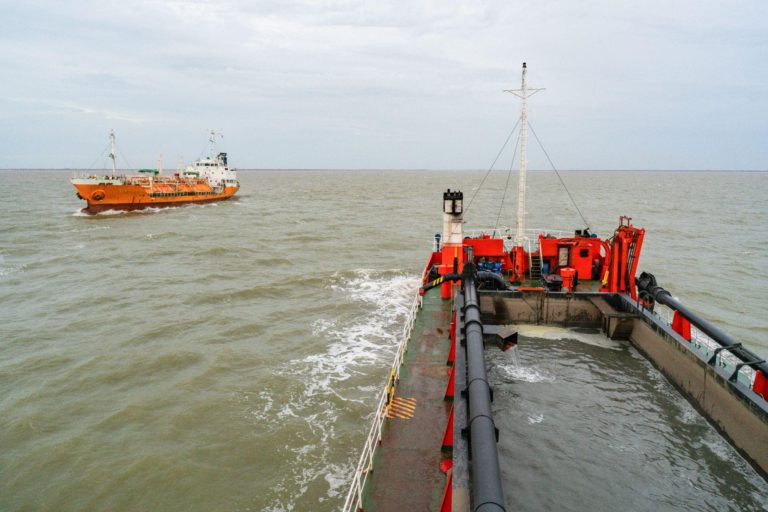When someone sustains a maritime injury while working in service of a vessel, they are usually entitled to maintenance and cure, which includes medical treatments, but many ask their maritime injury attorney if they can choose their own doctor or if they must use one provided by their employer.
What Is Maintenance and Cure?
The maintenance and cure definition is laid out in maritime law and has existed in one form or another for centuries. Shipowners are required to provide living expenses (maintenance) and medical treatment (cure) until a worker injured in service of their vessel is able to return to work.
Who Is Covered Under Maintenance and Cure?
Depending on the duties of a maritime worker and where they spend their time, they might be covered under the Jones Act, maintenance and cure, the Longshore and Harbor Workers’ Compensation Act, or the Outer Continental Shelf Lands Act. In order to qualify specifically for maintenance and cure, a maritime worker must:
- Work on a vessel that operates in navigable waters.
- Spend a significant amount of their time in service of that vessel.
- Contribute to the purpose of the vessel in their duties.
- Sustain an injury while performing their duties or residing on the vessel.
- Understand that a vessel might include a docked casino ship, a ferry boat, an oil drilling platform, or many other floating structures involved in moving passengers, transporting cargo, or energy production.
What Expenses Does Maintenance and Cure Cover?
While there is a wide variation in how employers interpret the categories of maintenance and cure, in most cases it should be sufficient to cover:
- Rent or existing mortgage payments
- Food and basic utilities like water, electricity, and heating fuel
- Homeowners insurance
- Transportation to medical appointments
- Medical treatment, equipment, and therapy expenses until the injured person reaches maximum medical improvement (MMI)
Can I Choose My Own Doctor Under Maintenance and Cure?
Injured maritime workers usually see a company doctor or onboard medical officer when they are injured. This is a normal part of reporting an injury, and workers should follow the company guidelines for reporting any injury at sea and seek medical care as soon as possible.

After returning to land, your employer or the shipowner will probably request that you see a company doctor for care and treatment. You might be required to be examined by their doctor, but you have the right to choose your own physician for your necessary medical care and treatment, and the vessel owner must pay for these expenses.
The Risks of Seeing an Employer’s Doctor
Even though injured maritime workers have the right to choose their own physician, they are often pressured to see a company doctor. While this path is made easy for you, the company doctor is not an impartial physician who answers to you as the injured person.
Some ways that using your employer’s doctors and therapists might put you at risk include:
- Providing minimal treatment and downplaying your injuries
- Additional travel and limited appointments with the company doctor or clinic
- Pressure to agree that you have reached your maximum medical improvement too early
- Assigning you to a rehab nurse or case worker who works to limit company liability
- Sharing your personal medical information directly with your employer
- Limiting your treatment and therapy options to reduce expenses
- Ignoring long-term effects of your injury that might result in disability
When Should I Seek Legal Advice About Maintenance and Cure?
If you have sustained a serious maritime injury, you might benefit from speaking to an experienced maritime injury attorney from Schechter, Shaffer, and Harris, L.L.P.––Maintenance and Cure. We can assist you with maintenance and cure, the Jones Act, or any maritime laws that might apply to your situation.
Our team of worldwide maritime lawyers, Jones Act attorneys, and offshore injury specialists have the resources and experience to stand with you against the insurance company lawyers employed by major players in the maritime industry. Maritime accidents and injuries happen every day and, in many cases, these individuals are entitled to compensation even beyond maintenance and cure.
If your vessel’s owner refuses to pay for living and medical expenses, forbids you to see your own doctor, or pressures you to sign away your right to sue for compensation in the event of negligence or unseaworthiness, you need sound legal advice right away. Contact us today for a free consultation and help navigating the legal aspects of an injury at sea.







